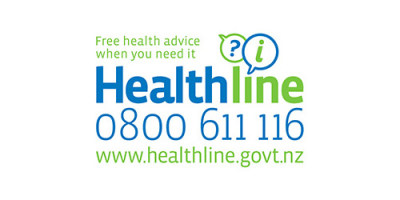Lee-ann O'Brien, RN and co-founder of Whanake Youth on Rangatahi Wellness
As soon as the first lockdown ended, Whanake Youth went bush.
“We wanted young people to connect with each other and connect with nature,” says Lee-ann O’Brien, RN and co-founder of Whanake Youth, a charitable trust and youth centre with a health focus located in Stoke.

Whanake Youth co-founder, Lee-ann O’Brien
The hike to Lakehead hut in St Arnaud usually takes three hours, but it took the group twice that amount of time. It was unfamiliar territory in lots of ways, says Lee-ann. Some had never hiked or carried their own packs before, and everyone would have been a bit rusty at in-person socialising.
“We were all asleep by 8:30 at night,” Lee-ann recalls with a laugh.
It wasn’t just the long day that called for an early bedtime: no screens disrupted patterns that had formed during isolation.
“Lockdown changed routines for a lot of young people. Some people got into the habit of gaming late into the night, or talking to their friends late, and often worrying about their friends really late. So to have no devices and just be outdoors was so good for young people.”
When the weather clears in spring Lee-ann is looking forward to reinstating what are called ‘walk and talks.’ “Naturally when you're walking, you're talking, but it's not that intensive kind of therapy type stuff-- it's that opportunity for young people just to talk in a safe way and feel supported and connected with each other.”
In essence, this is Whanake Youth’s goal: to provide a safe space where young people ages 12 to 24 can access professional healthcare, as well as advice and support from knowledgeable, trained professionals who care.
Lee-ann founded Whanake Youth in 2017 alongside Debbie Hollebon, a social worker in the emergency department, when they connected over their shared backgrounds in youth work and their concern for the way young people struggle to navigate the health and mental health system.
“We had some frustration around the difficulty that young people have in accessing health and wellbeing services, whether it is about privacy, confidentiality, transport costs, or even just knowing where to begin,” Lee-ann recalls. “So together we thought actually we can make a difference. The essence of that is that we reckon we know young people really well. We know the system and that it works in silos, generally. Young people come with needs, whether it is family, physical health, or mental health, or poverty, employment, or education— and we thought we needed one place where people can come to that covers the whole lot.”
That place became Whanake Youth. Whanake Youth provides a drop-in centre called “HQ” complete with X-box, table tennis, and a kitchen for cooking and baking. On Mondays, Tuesdays, and Thursdays, young people ages 12 to 24 can visit 548 Main Road, Stoke. Monday’s are a “chill day” for games indoors or out; Tuesday brings a Kai Rescue delivery and some creativity in the kitchen, and Thursday’s are for mindfulness: strategies to deal with stress and stay present in the moment. Tuesday through Friday between 7:15 and 9:15 AM people ages 15 to 24 can learn barista skills at Whanake Youth’s SYP café, a social enterprise developed by the centre’s young participants who wanted employment experience in a relaxed atmosphere.

Whanake Youth's HQ is located behind the Stoke Memorial Hall, 548 Main Rd Stoke
A nurse, a social worker, or a youth worker is present at every HQ drop-in session. Whanake Youth also organises school nursing for Motueka High School and Nayland College, and has social workers and youth workers in Broadgreen Intermediate and Nelson Intermediate.
“They are all youth workers in the sense that they work from a positive, strengths-based youth development perspective,” Lee-ann says. While everyone works within the scope of their profession, the team is strongly connected so that a young person’s needs are met on each level, whether it is a health concern, a question about how to handle anxiety or panic attacks, or questions about when to go to the GP.
Having that on-the-ground in school support has been vital as young people are still adjusting to the realities of education during a pandemic.
Post-lockdown, “young people have been distressed about not having gotten the education they wanted to get,” Lee-ann says. “During lockdown it was a bit tricky for some young people to get the support they needed online. So in terms of coming back to school, there was more of a rocky foundation in the sense of resilience that young people had. It’s a lot harder to bounce back as high, just because these challenges have been going on for such a long time.”
In addition to the feeling of having missed out, Lee-ann sights sensory challenges when going from the home environment to a large and loud school environment; the difficulty of getting back into school routines and expectations; and the fear of exposure to COVID-19 and flu as all combining into “a melting pot in terms of stress.”
However, Lee-ann is firm in her conviction that the stress is nothing that young people cannot handle. What’s important now, is that they are genuinely listened to.
“Young people are awesome and young people, like everyone, have done it hard. For them to be listened to and to be heard is important. Young people are really responsive to that,” Lee-ann says.
Working from a place of trust, the professionals at Whanake Youth are able to assist youth in learning how to talk about their well-being needs and how to access care.
“A lot of what we do is health literacy,” Lee-ann says. “When you're a child, parents or caregivers often do the talking for you and arrange your GP appointment. But when you’re an adult you’re on your own. So part of our role is modelling these conversations. As health professionals we are able to engage and communicate with them in a way that is relevant to young people. We give them the opportunity to ask some questions without the usual barriers - things like the waiting room-- which can be anxiety provoking for a young person when you feel like everyone is staring at you – or time. We don’t have a time limit and we have the ability to see them again and again, for as long as they need, at no cost to the young person.”
As they get older, young people also want more privacy and autonomy when it comes to their wellbeing, something that Whanake Youth supports them in.
“The privacy is the biggest thing. We’re not going to tell anyone anything. They feel quite safe in that. Some young people like to have the autonomy of not having their parents involved in what's going on, not because they want to be secretive or, or it's harmful, but it's embarrassing sometimes for young people to talk about some of this stuff.”
Lee-ann witnessed this same independence and agency when Whanake Youth participants advocated for the development of Stoke Youth Park, which opened in October 2021 and boasts skate ramps, an area for food trucks, and a basketball court. Just as they do in the health and wellbeing space, Whanake Youth supported rangatahi in realising the power of their voices when advocating for what they wanted-- exemplifying the holistic, whole-person approach to youth development Whanake Youth is all about.
For more on Whanake Youth visit their website or follow them on Instagram. To support Whanake Youth’s work, consider donating to their “The Awesomeness of Youth” fundraiser.





